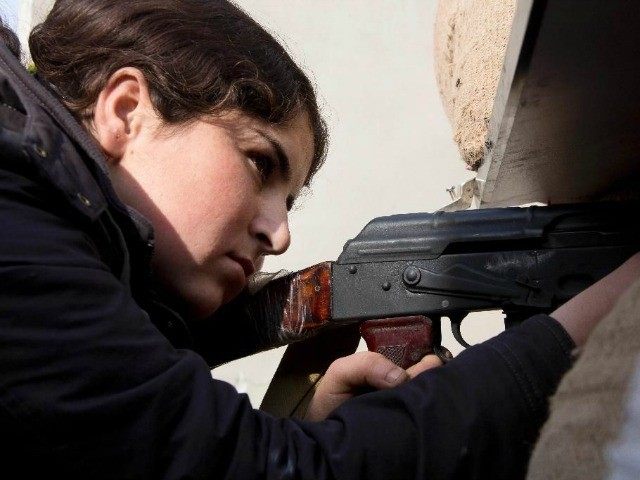Kurdish Prime Minister Nechirvan Barzani told Reuters an offensive to retake Mosul from the Islamic State (ISIS/ISIL) will not happen until the fall due to inadequate forces.
“This is a long war,” he explained. “They control more than 15 million people in Iraq and Syria. IS has now been contained and controlled but it is still able to carry attacks. They are organised and able to recruit people from all over the world. The structure of this organization has been set up in such a way that it will remain intact.”
Barzani suggested the Kurdistan Regional Government (KRG) work with the Peshmerga, the Iraqi Kurdistan army.
“With air strikes you cannot destroy this organization for sure,” he said. “To destroy this organization we need some special forces, not boots on the ground, but some joint military operations fighting alongside the peshmerga. The question is: is the policy one of containment, or to dislodge and destroy them? In order to totally eradicate them, further action must be taken.”
On January 23, The Wall Street Journal reported the United States and Iraqi military forces began preparations to liberate Mosul. General Lloyd Austin, head of the military’s Central Command, said their offensive will be ready by spring. The United States continues to bombard the terrorist group with air strikes while forces “reclaimed about 300 square miles of territory and killed some 6,000 members.” Barzani does not think armed forces are enough to eliminate the terrorist group.
“They need a comprehensive strategy and ideas on how to deal with IS in the region. There is no strategy and cooperation,” he rationalized. “ISIS is well-trained, well-funded and can recruit as many as they want. And they also have fighters who are ready to die. This is not a war you can win with AK-47s and RPGs.”
Instead, Barzani believes the solution lies on the Syria and Iraq border. Forces must seal the border and “deny the Islamist fighters freedom of movement” within their self-declared caliphate. Iraq must also find unity to fight the Islamic State.
“There is no loyalty to a country called Iraq,” he mentioned. “It really is important to find formula for how to live together within the boundaries of what is called Iraq. Unless a formula is found, there will be more bloodshed and the country will remain a destabilising factor in the region.”

COMMENTS
Please let us know if you're having issues with commenting.